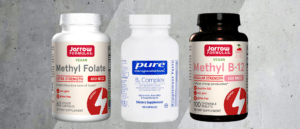Can These 8 Habits Really Add Years to Your Life? Longevity Experts Weigh In
B
oosting your lifespan can get expensive, even if you don’t invest millions in experimental biological-age reversing tech like Bryan Johnson. But new research shows that eight longevity habits could boost your lifespan by up to 24 years—without breaking your budget.
Researchers from the Million Veteran Program, a longitudinal study that investigates the health and wellness of veterans, examined the health habits of 720,000 veterans between the ages of 40 and 99. They found that optimizing exercise, diet, stress management, sleep and social life—while reducing smoking, alcohol and addiction—boosts lifespan. Study participants who adopted all eight habits had an 87% relative reduction in all-cause mortality, compared to those who didn’t change anything.
The sooner you adopt these habits, the more lifespan-extending benefits you can reap from these habits. The unpublished study found that participants who started at 40 could increase their life expectancy by 24 years. But you can benefit at any age. Starting at 50 can increase your life by up to 21 years. Adopt these habits at 60 years old, and you can still snag an extra 18 years.
Even if you’re dealing with age-related chronic diseases, these habits could still boost your lifespan.
“We did an analysis to see if we eliminated people with type 2 diabetes, high cholesterol, stroke, cancer and the like, does it change the outcome? And it really didn’t,” lead study author Xuan-Mai Nguyen said at the Nutrition 2023 conference, where the study was presented. “So, if you start off with chronic diseases, making changes does still help.”
Longevity experts weigh in on how to easily—and cheaply—incorporate these lifespan-boosting habits into your routine.
8 Habits to Increase Your Longevity
Exercise More
The study authors identified exercise as the most important longevity-boosting habit by a long shot. 7.5 metabolic equivalent hours of exercise reduced all-cause mortality risk by 46 percent on its own.
“We looked at whether they did light, moderate or vigorous activity compared to not doing anything and just sitting on the couch,” Nguyen said. “People who lived longer did 7.5 metabolic equivalent hours of exercise a week. Just to give you a baseline—if you can walk up a flight of stairs without losing your breath, that’s four minutes of 7.5.”
Pro-tip: Focus on zone 2 training
Zone 2 training involves maintaining a cardio workout—like cycling, running, walking, or hiking—at low intensity (between 65 to 75 percent of your maximum heart rate) for at least 45 minutes.
“Zone 2 training builds a foundation for anything else you do in life,” longevity doctor and The Drive podcast host Peter Attia says. “It also plays a crucial role in preventing chronic disease by improving the health, efficiency, and flexibility of your mitochondria—which decline with age.”
Don’t overdo it. If you shift into zone 3 you’ll stop stimulating your mitochondria.
Get Help for Addiction
Opioid addiction was identified as the most impactful negative lifestyle factor in the study. Not being addicted to opioids reduced the risk of early death by 38 percent.
Veterans, the subjects of the study, are particularly impacted by the U.S. opioid crisis. A 2022 study found that opioid overdose mortality increased by 53 percent amongst veterans between 2010 and 2019 (1).
If you or are loved one are struggling with an opioid addiction, these 24/7 hotlines can connect you with support and resources:
National Council on Alcoholism and Drug Dependence (NCADD): 1-800-622-2255
Partnership to End Addiction: Call 855-378-4373 or text CONNECT to 55753
Substance Abuse and Mental Health Services Administration (SAMHSA): 1-800-662-4357
In case of an immediate threat to your safety, call 911.
Stop Smoking
If you’ve never smoked tobacco, your risk of death is automatically reduced by 29 percent.
Unfortunately, this benefit may be greatly reduced if you’re a former smoker, as the study authors intentionally excluded anyone who had ever smoked.
Still, quitting smoking at any point in your life may produce longevity-boosting benefits like reduced risk of cancer, cardiovascular disease, and inflammation, according to the American Cancer Society.
Pro-tip: Take nicotine a safer way
Vapes and e-cigarettes are frequently touted as a healthier way to consume nicotine, but Attia doesn’t trust their safety.
“I don’t think that the industry is standardized enough to be sure that what is being inhaled [through vapes] is sufficiently clean,” Attia tells Chris Williamson on a recent podcast. “For me personally, it’s a no-brainer. There’s no upside to [vaping].”
However, he tells Williamson that he’s “all about nicotine” if consumed safely. In fact, he takes nicotine himself to boost mental focus.
“Nicotine, I love. I would chew gum, or I use lozenges or patches,” Attia says. “Nicotine isn’t the problem with cigarettes. Yes, it has an addictive component to it. The problem is the toxicity of the vehicle that’s delivering the nicotine—tobacco.”
Learn to Manage Stress
Being able to manage stress reduced the risk of death by 22 percent, according to the study. That’s not something we’re collectively great at: Around 75 percent of American adults reported stress-related health issues in the prior month, per a 2022 survey from the American Psychological Association (APA).
The lifespan-shortening effects of stress follow you even after you log out of work for the day. Chronic stress is linked to an increased risk for respiratory, cardiovascular, musculoskeletal, and hormone disorders, according to the APA.
Pro-tip: Adopt a growth mindset
Huberman acknowledges the toll that stress can have on your mental health, but changing your mindset around stress can actually turbocharge your productivity.
“Growth mindset is the process of distancing your identity from performance and rather attaching your identity and your efforts and your sense of motivation to effort itself,” says Huberman.
One 2013 study found that participants who were told that stress enhances their performance were more likely to succeed at a stressful task (2). Their peers who were told the opposite struggled to excel in the same task.
“This is not the placebo effect. We’re talking about two different conditions,” Huberman says. “One condition where people are exposed to information that is true about how stress can diminish performance. And another condition in which people are exposed to information that is also true about how stress can enhance performance.”
Eat Plant-Based
Sorry, Liver King. Ditching a diet high in meat for a plant-based alternative was shown to reduce risk of death by 21 percent.
While red meat is packed with protein and healthy nutrients like iron and zinc, research shows that consuming red meat may increase inflammation (3), which can increase your risk of life-limiting conditions like heart disease, cancer, and Alzheimer’s (4).
Conversely, plants are high in antioxidants and phytochemicals that work to reduce inflammation by axing free radicals (unstable molecules you’re exposed to in the environment), according to the National Cancer Institute.
Pro-tip: Try the Mediterranean diet
Even the study’s authors say you need to go fully vegetarian or vegan—instead, follow a Mediterranean diet, which is full of fish, poultry, grains, and leafy green vegetables. Longevity experts like Mark Hyman, M.D., and Dan Buettner swear by this diet to reduce cardiovascular disease risk (5).
Leafy, green vegetables like broccoli, spinach, artichokes, and shallots are high in polyphenols, a beneficial plant compound that may improve digestion, boost brain function, and reduce the risk of certain cancers (6). Polyphenols may also regulate metabolism and inflammation.
Limit Alcohol
While many longevity experts like biologist David Sinclair, Ph.D., recommend ditching alcohol altogether, the study found that keeping it under four drinks a day could reduce early death risk by 19 percent.
Binge drinking is associated with conditions like liver disease and decreased organ function (7). And the risk of mortality associated with alcohol also skyrockets from cases of drunk driving fatality and injury (8).
Pro-tip: Come up with personal alcohol rules
Attia sticks to strict alcohol rules he’s set for himself to take the pressure of enjoying an occasional glass of wine. He says he avoids having more than two drinks in a day.
“And it’s got to be a really good reason to drink more than three days a week,” Attia tells Tim Ferriss. “In the back of my mind I’m keeping a tally, which is I really shouldn’t have more than seven drinks in a week.”
His other alcohol rules include only finishing a drink if it tastes good and avoiding alcohol three hours before sleep.
Get Enough Sleep
Sleeping 7 to 9 hours a night—without waking up in the middle of the night—may reduce all-cause mortality by 18 percent, according to the study.
Not getting enough Zs may also increase your risk of developing life-shortening conditions like high blood pressure, heart disease, diabetes, depression, erectile dysfunction, and low testosterone.
Pro-tip: Try these sleep hacks
If you’re having a hard time winding down after a busy day, try these longevity expert-backed sleep tricks before you reach for that bottle of melatonin (in fact, Huberman advises against exactly that due to research that suggests it may only increase sleep by about 4 minutes).
Take a hot bath
Patrick follows research that suggests that raising your body temp a couple of hours before bed may trigger sleepiness (9).
“It’s been my personal experience that heat exposure with appropriate cool down has helped me with aspects of my sleep,” Patrick says. Her bath protocol? 104 degrees Fahrenheit, 20-30 minutes, 1-2 hours before bed.
Avoid blue light
Hopefully, you’re not reading this in bed. But if you are, it might be time to invest in some blue light glasses. Sinclair told Patrick on an episode of the FoundMyFitness podcast that he uses blue light glasses when he has to use his electronic devices before bed to avoid messing up his circadian rhythm.
Read more about how longevity experts get more Zs.
Build Social Relationships
Having positive social relationships reduced the risk of early death by 5 percent, which seems small, but can have major impacts on older adults.
People who are dealing with social isolation had a 32 percent increased risk of all-cause mortality, according to a 2023 study (10). Participants in the same study who reported loneliness had a 14 percent increased risk.
Loneliness may cause cortisol levels to rise, according to the Cleveland Clinic, which can decrease cognitive performance and increase your risk of inflammation and heart disease.
Pro-tip: Prioritize “real friends” over “deal friends”
Attia thinks that the type of friends you’re interacting with can be just as important as getting enough social interaction.
He groups social connections into two categories using Aristotelian hierarchy: real friends and deal friends. Real friends “mutually value the other’s existence.”
“In perfect friendship, you may have a shared passion for something like music, mountain biking, or fostering shelter dogs,” Attia says. “In other words, endeavors are completely unrelated to careers, money, and success.”
“Deal” friends, on the other hand, lack the emotional connection of real friends. “[They] primarily serve the purpose of helping us achieve our goals,” Attia writes in a blog. For example, professional connections you make at a work conference. “This type of friendship may bring some temporary enjoyment from spending time together, but it doesn’t tend to bring lasting joy to your life.”
“Having more real friends isn’t just a matter of increasing our overall pool of social connections,” Attia writes. “We likely need to give up some of the ‘deal’ friends to make time for more meaningful relationships.”
References
1. Bennett, et al (2022). U.S. Military veterans and the opioid overdose crisis: a review of risk factors and prevention efforts.
2. Crum, et al (2013). Rethinking stress: the role of mindsets in determining the stress response.
3. Wang, et al (2022). The Effects of Red Meat Intake on Inflammation Biomarkers in Humans: A Systematic Review and Meta-Analysis of Randomized Controlled Trials.
4. Singh, et al (2019). Inflammation and Cancer.
5. Gea, et al (2019). The Mediterranean Diet and Cardiovascular Health.
6. Cory, et al (2018). The Role of Polyphenols in Human Health and Food Systems: A Mini-Review.
7. Molina, et al (2018). Binge Drinking’s Effects on the Body.
8. GBD2020, (2022). Population-level risks of alcohol consumption by amount, geography, age, sex, and year: a systematic analysis for the Global Burden of Disease Study 2020.
9. Haghayegh, et al (2019). Before-bedtime passive body heating by warm shower or bath to improve sleep: A systematic review and meta-analysis.
10. Wang, et al (2023). A systematic review and meta-analysis of 90 cohort studies of social isolation, loneliness and mortality.















